Knowing the source of a recipe is critical to your cooking and baking results. It can also be the difference in you being a good cook versus a bad cook!
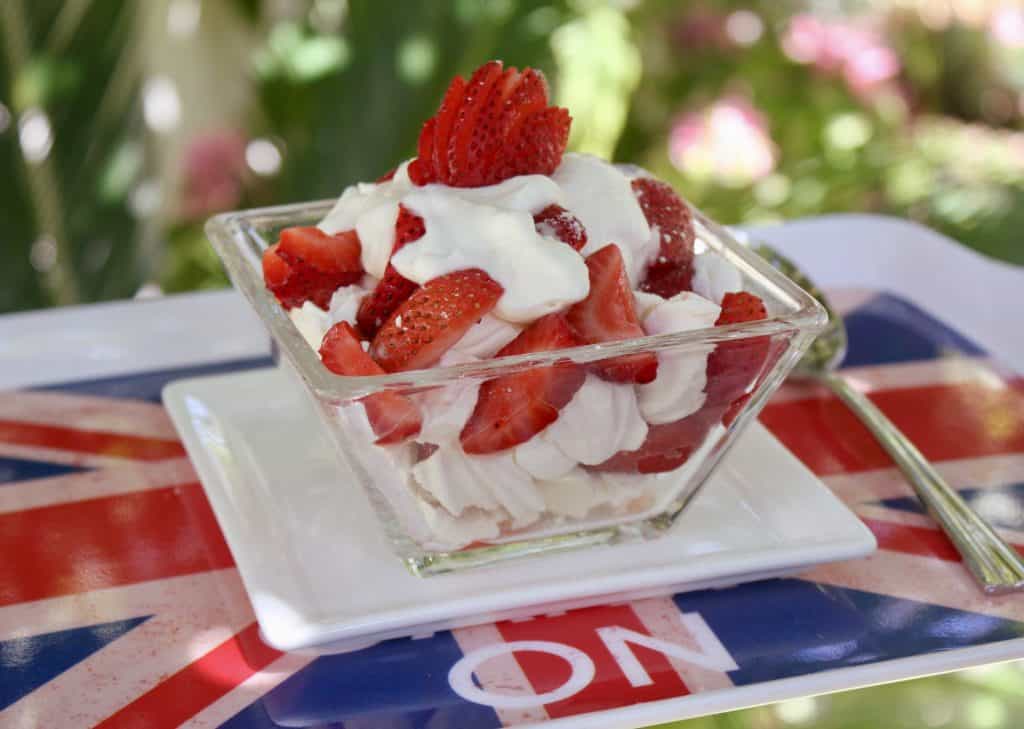
Traditional British Eton Mess truly needs no recipe, in my opinion. However, what if you’ve never heard of Eton Mess?
As an Amazon Associate I earn from qualifying purchases.
This is probably the case with most people outside of the UK, and if you have heard the name in passing, you still may not have a clue what it is. For the Eton Mess recipe, scroll to the bottom, or click on the photo below.
Knowing the Source of a Recipe
The other day I happened across another blogger’s post and recipe for Eton Mess. She wasn’t British and as far as I could tell, quite possibly had never even been ‘across the pond’. Why did I think this? Because her description told me that she truly didn’t know what Eton Mess was. She described it as a trifle.
Eton Mess is not a trifle. Eton Mess, for those of you who don’t know, is a dessert consisting of crushed meringues, strawberries and cream; not layered as a trifle or with the ingredients of a trifle.
Credit, where credit is due-on recipes. Does it exist anymore?
I must also note that most recipes I see on many blogs and recipe pages contain no credit to the original source, or source of inspiration. We can all admit, almost no one is creating a truly “original” recipe at this point in time so what harm is done in knowing the source of a recipe? I don’t understand why it’s frowned upon.
I always try to credit each recipe I share because it gives the reader a sense of background on the recipe and it’s just the right thing to do. Whether it was something my Nonna made and passed down to her daughters, a recipe I created from one I had at a restaurant, or one I’ve been using from a favorite cookbook, I will almost always credit a source with “credit…”, “adapted from…”, or “inspired by…”.
When I go to a site and see a recipe for a triple layer chocolate cake with Italian meringue (just making up an example) and the authorship for the recipe goes to the young blogger who has never been to cooking school, I wonder where he or she originally got the inspiration/original recipes from.
Why not give credit where credit is due? It’s only fair. I’ve seen my recipes copied in full on other sites, with no attribution to me, or my site, and I can tell you, it’s frustrating and disheartening. Facebook is rife with recipe sharing groups which demand that recipes be copied and pasted into their files! :( I recently followed one of my own photos on Google images, only to end up on another blogger’s page for an almost identical recipe! ☹️
A few years ago, I came across a blog post which blew me away. It was so ridiculously similar to my friend Cathy’s recipe post (from two years prior) for teabag cookies AND hedgehog cookies in the same post! I actually called the blogger out on what she’d done. It was so obvious that no one would ever post about such a random pairing of cookies on the same post.
To add insult to injury, the food styling with pink china teacups was the same, too. She also had a photo on how to use a straw to make the hole for the string for the teabag, identical to Cathy’s. Not only did she deny that she’d seen it, but for some reason, she gave credit to two other bloggers, and to this day, has never changed a thing.
My point: I see things like this EVERY. SINGLE. DAY. Most readers never question knowing the source of a recipe, and why should they if they have no idea that this is going on?
I asked my Facebook readers about recipe searching the other day, and out of hundreds of responses, only one reader stated that she actually considered whether the recipe was the author’s own work.
The majority of recipe-searchers find a recipe, maybe the photo looks good (I’ve had legitimate online sources–newspapers–publish my photo with someone else’s recipe–I kid you not), ingredients look right, so they try it. Whether it works or not is another issue.
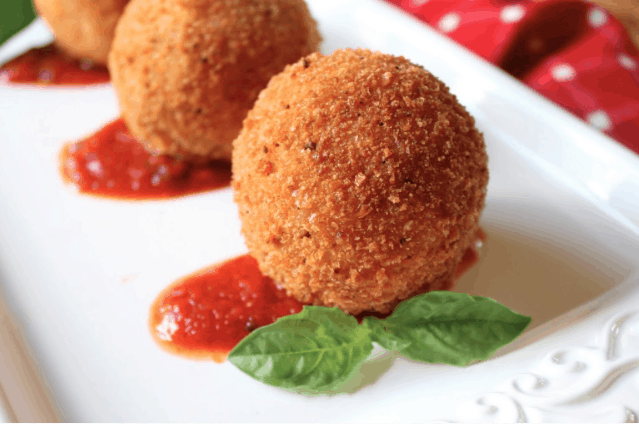
Where does the blame lie? You’re probably not such a bad cook/baker after all!
Have you ever told yourself you’re a bad cook or you’ve failed trying to make or bake a recipe that you were excited about? Did you ever consider that it’s not YOU, but the recipe? There are so many recipes available that have never (ever) been made in a kitchen!
This article in the LA Times expresses my concerns precisely. People are using recipes every day that are doomed to fail, and often blame themselves. My favorite part of this article is a quote from award-winning cookbook author, Rose Levy Beranbaum~
“It’s more important than anything to be able to trust the author.”
For example, I cannot tell you the number of arancini recipes I’ve seen that I can tell that from just reading the recipes that they won’t produce good results. I feel terrible for people who will endeavor to make them, only to be disappointed with a failure and blame themselves. Most people won’t know that a recipe won’t work just from reading the ingredients and directions.
I personally know of a site where the blogger buys a stock photo and creates a recipe to go with said photo. No wonder she claims that food blogging is easy! It is if you never have to buy ingredients, prepare them, cook them, photograph them, clean up, or edit the photos! However, would you want to use her recipes? I can tell by reading them that they are a disaster waiting to happen. It’s so sad for anyone who finds and uses them.
How to find a trustworthy and reliable recipe.
Know your source.
So what is a reader to do? Know your source. If you’re not going to your favorite blogger’s site that you already know and trust, when you do a search, look at the “about” page. There isn’t one? Hmmm–that’s the first red flag. Many of the scraper sites that steal online content make their page look like a blog, complete with a photo (usually of a pretty, young woman), but there is no trace of a human, where they are located, no email, or contact form. I’d advise you to steer away from all of these pages.
Does the author have the knowledge/authority/experience to post this recipe?
Is the recipe for Eton Mess? Is the author British? Do they explain some British connection in their post that would make their recipe trustworthy? For example, I recently posted a recipe for Filipino lumpia. Filipino Lumpia on a Scottish/Italian focused site? Here’s the reason you can trust my recipe: my next door neighbor taught me how to make them. The recipe is authentic because she is from the Phillipines, and she gave me her permission to share her authentic recipe.
Many of my readers stated that they use AllRecipes as a resource for finding recipes. Here’s the problem with AllRecipes, Epicurious, and other sites that allow uploading of recipes to their site: anyone can copy and paste any “recipe” to that site.
There is no credit given from where the recipe came from, and the fact of the matter is, most people have no idea that what they are doing is illegal (copyright infringement). They truly mean no harm, but it’s a big problem for recipe developers.
What is the author’s background? Trained chef? Home cook? Ethnic cooking in their repertoire? Baking pro? “Jack-of-All-Trades”?
I’ve learned that just because someone has gone to cooking school doesn’t mean that they’re a great cook. A home cook who has never been trained can also be a fantastic cook. If someone is spouting off how fabulous a recipe is without credit to a source, background or authentic reviews from readers who have made that recipe, do a bit more looking.
Do the recipes seem like they belong on the same site? Or is it a crazy conglomeration of the latest foodie fads and whatever else has struck their fancy that week? I often find that sites with the most authoritative voice on having “the best recipes out there”, tend to be among the weakest. On the other hand, Amanda from i am baker, could probably bake and decorate cakes in her sleep, but never toots her own horn. She lets her creations do the talking for her.
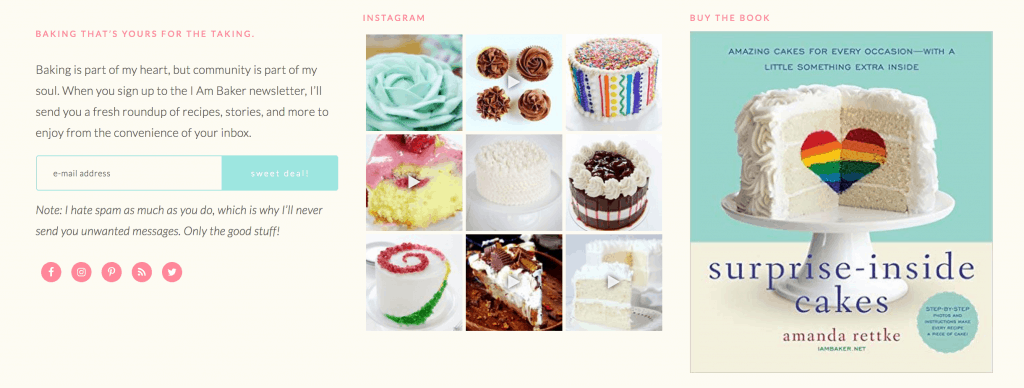
Don’t get me started on all the faux Italian recipes that are floating around the internet. Why use “Italian” when nothing remotely similar has ever been seen across the entire Italian peninsula from the time that the Etruscans were there? Because the word “Italian” makes everything better, more appealing and more genuine. Check out my friend Robert’s site, STOP ITALIAN SOUNDING. He’s big on TikTok and Instagram and you’ll enjoy learning about all things Italian (and what is NOT Italian).
Want a super source for authentic Italian food? Then go to a site like Memorie di Angelina. Frank gives an in depth history of the dish and so much more than just a recipe. You just may end up reading his posts even if you don’t like to cook!
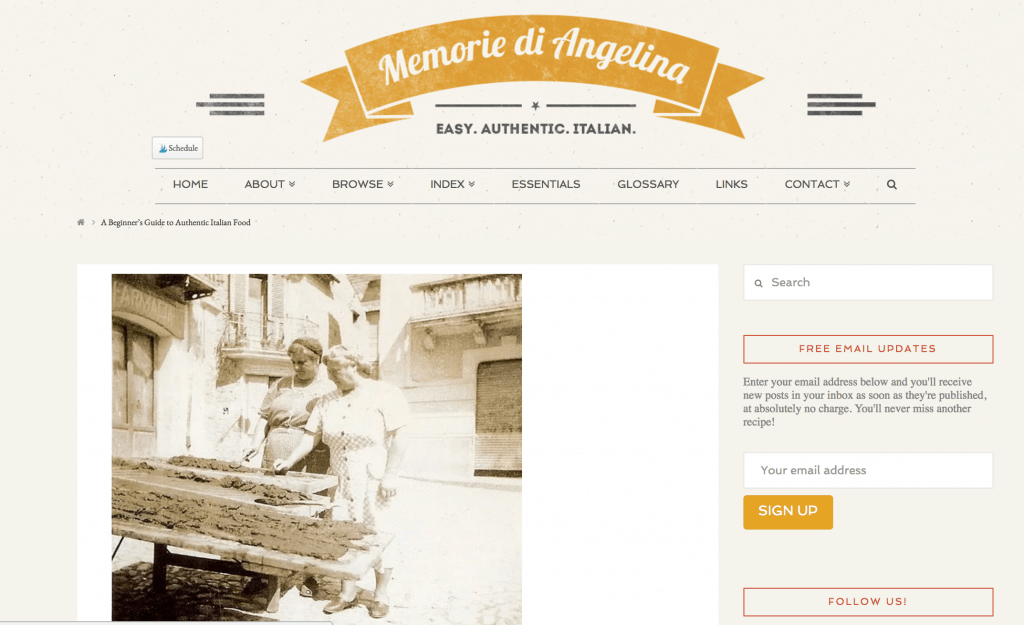
My real life pal, Valentina from Cooking on the Weekends is a trained chef, so I wrote all about her to let you know.
Comments/Reviews that Help in Knowing the Source of a Recipe
I’m very cynical when it comes to reviews, in the same regard as when I read TripAdvisor reviews. Why? I don’t know who is commenting. Have they actually made the recipe? Does the reviewer only comment on the recipe or dish itself? I can’t tell you how many “internet trolls” there are, boucing around the web leaving awful comments all over the place for no reason other than how it makes them feel (powerful?).
Many times, bloggers comment on a friend’s recipe, simply as support. I do this, and in turn, receive similar comments on my recipes. Scroll past these and look at the comments and reviews of readers who have made the dish.
A thousand comments doesn’t equate to a good recipe. I rarely delete any comments, even if they are bashing my recipe, because in the midst of a sea of great reviews, it will be clear that the problem isn’t with my recipe, but with the reviewer.
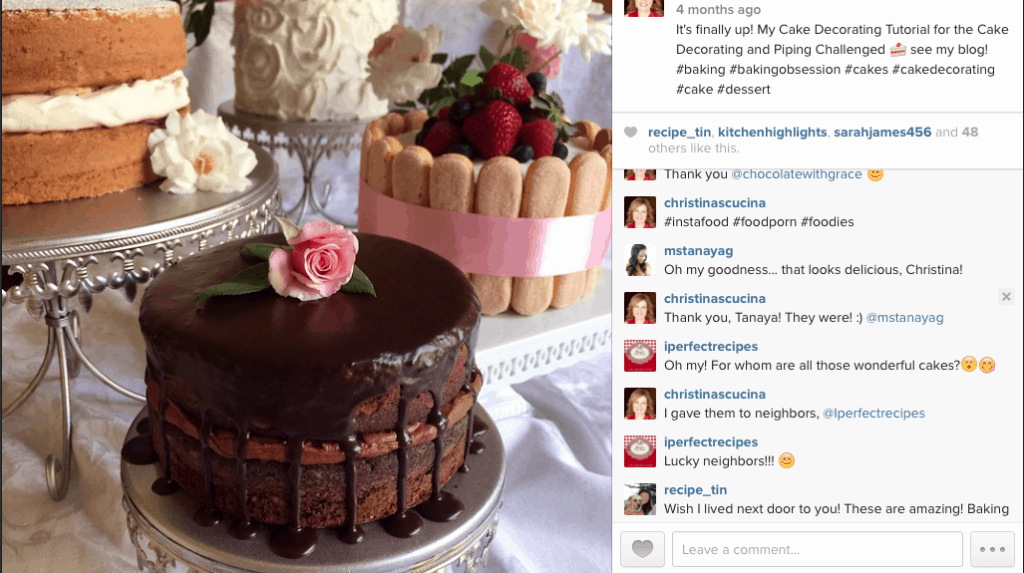
For example, when I first posted my perfect yeast doughnut recipe which I slightly adapted from a bread cookbook, I got some really mixed reviews. Some raved, others complained–a lot!
What I realized after a while, was that the negative reviewers weren’t taking my advice on weighing the ingredients and were making BIG mistakes when using cups. They were mixing up weight and volume which was their fault, not mine. However, they would come back to my recipe page and rip me and the recipe apart. I can’t tell you how frustrating it was on my end, knowing that this was such a solid and foolproof recipe.
Finally, I did what I should have done to begin with–I removed the cups measurements so if anyone wanted to make my doughnuts, they’d have to weigh the ingredients. Guess what? Problem solved! No more nasty and negative comments (besides trolls)! Great reviews keep rolling in and I couldn’t be happier! However, my readers, I’m sure, are even happier with their perfect, fluffy doughnuts!
_________________________
Readers Appreciate Knowing the Source of a Recipe
I hope that after almost 6 years (over 10 now!) of sharing recipes (and travel tips) that I’ve gained your trust. I know for a fact that many of my readers can trust my recipes because they’ve tried them and they work. They also tell me that they enjoy knowing where I came upon the recipe. This is a recent comment I received, and I can’t tell you how much it meant to me.
“ps I aways enjoy visiting your site – beautifully done, great descriptions and wonderful photos. You give us so much information and break down all the necessary steps so well. You have become the only food blogger I check regularly!” –Judy11
My recipes are reliable because I won’t post anything which hasn’t worked for me. In turn, there are certain bloggers who I have learned that I can trust. The most obvious is a friend whose recipes I share on my Facebook page every day: Cynthia from What a Girl Eats.

Not only do we have the same “foodology” (I couldn’t resist), or ideology regarding food, such as keeping away from processed ingredients, but we are also honest and ethical. Cynthia’s recipes are solid for a minimum of two reasons: she’s gone to cooking school, is passionate about cooking, and feels the same as me in knowing the source of a recipe!
Cynthia has also traveled all around the world, including living for some time in the UK. Whenever I ask her for cooking advice, she’s never at a loss.

Of course there are other fabulous bloggers with very reliable recipes, and you’ll see them shared on my Facebook page, too. For example, Jill from Mad About Macarons has some phenomenal recipes that are simple to make, too (I’ve used them) and she’s the author of two French pastry cookbooks.
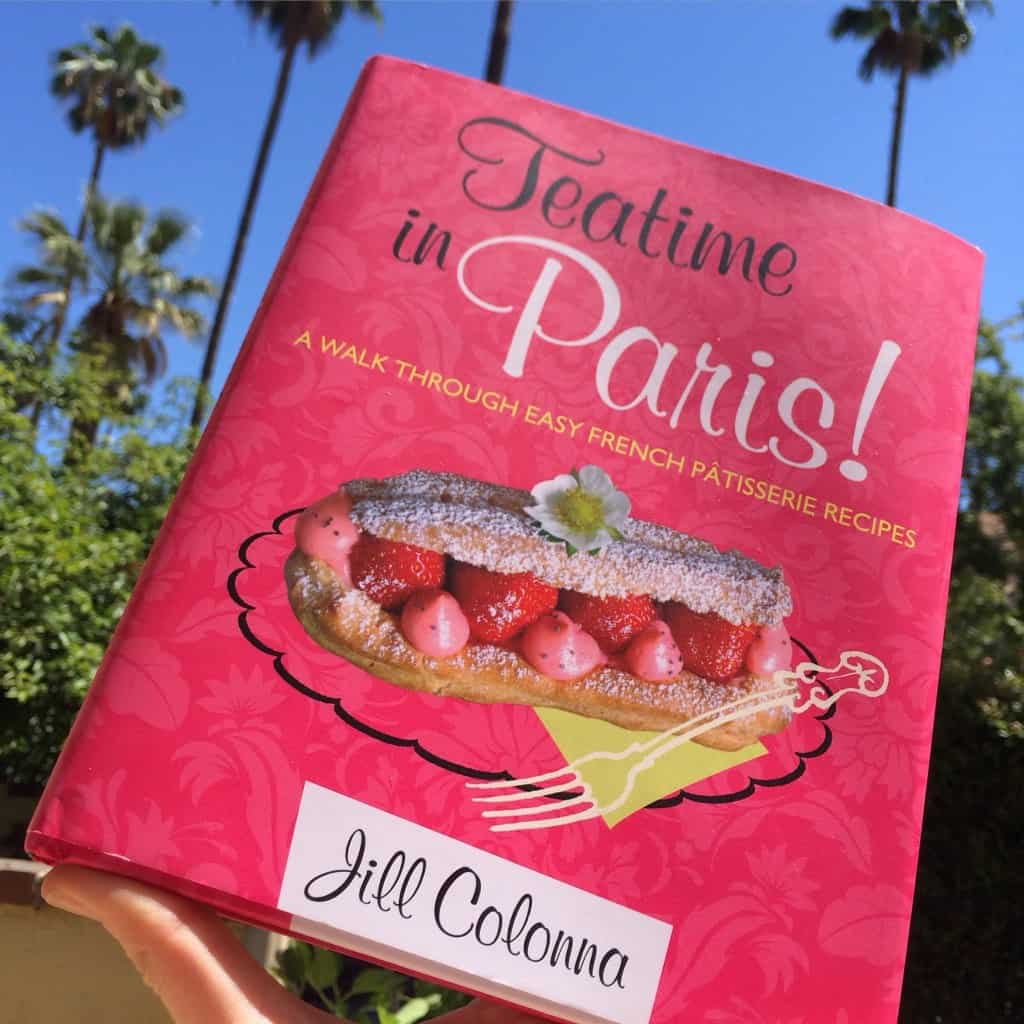
I’m going to add that you should be following Nancy Birtwhistle (Great British Bake Off winner) on Facebook or Twitter as she’s been sharing brilliant tips. Saying that her baking is top-notch goes without saying, too!
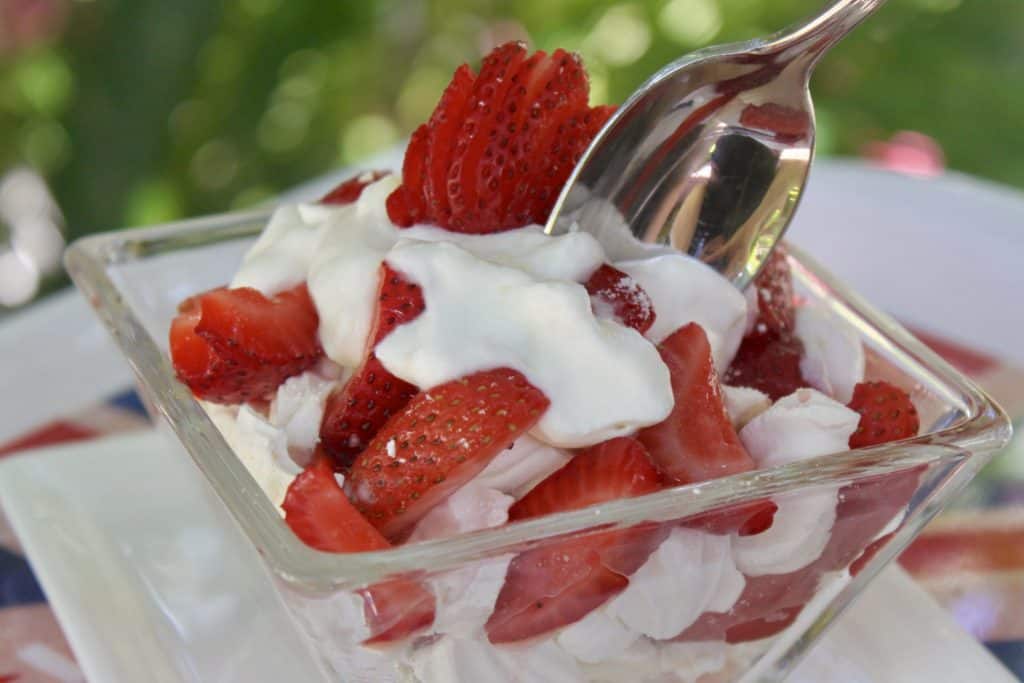
Back to Eton Mess. I’ve had this classic British dessert on my list of recipe drafts for years. Having a Scottish/British site, it’s almost a crime not to have the recipe available. However, given that Cynthia already has Eton Mess on her site, I’m going to send you there for this super-easy, summertime dessert.
Click the link or photo below to go to Cynthia’s recipe for a twist on a traditional Eton Mess.
What’s your experience in knowing the source of a recipe you find on the internet? Do you look for more than a few sources, or go with the first one you find on google? Are my tips helpful? Let me know in the comment section below.
Don’t miss another travel or recipe post; subscribe to my free subscription below!
Christina’s Cucina is a participant in the Amazon Services LLC Associate Program, an affiliate advertising program designed to provide a means for sites to earn advertising fees by advertising and linking to Amazon.com.
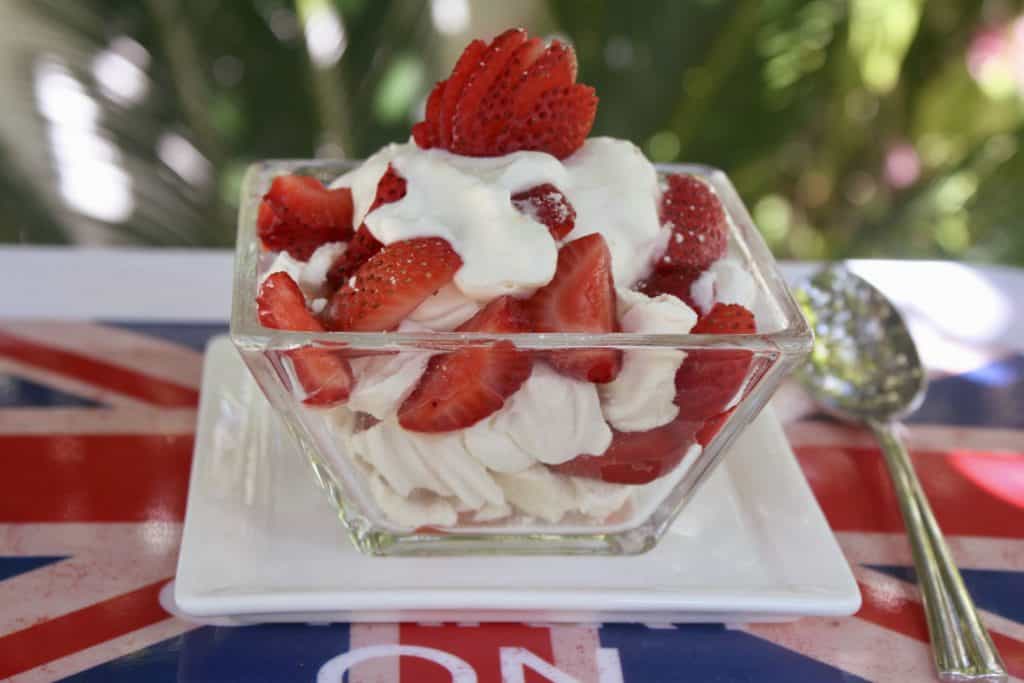
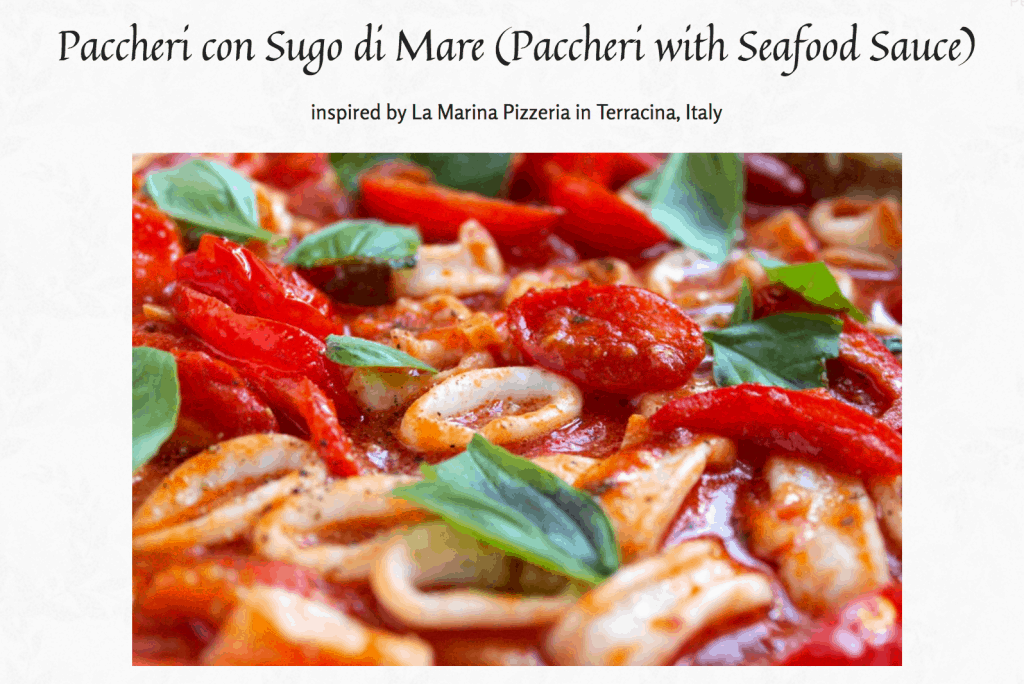
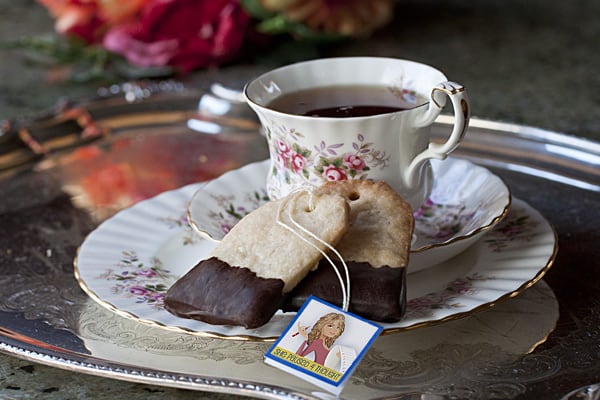
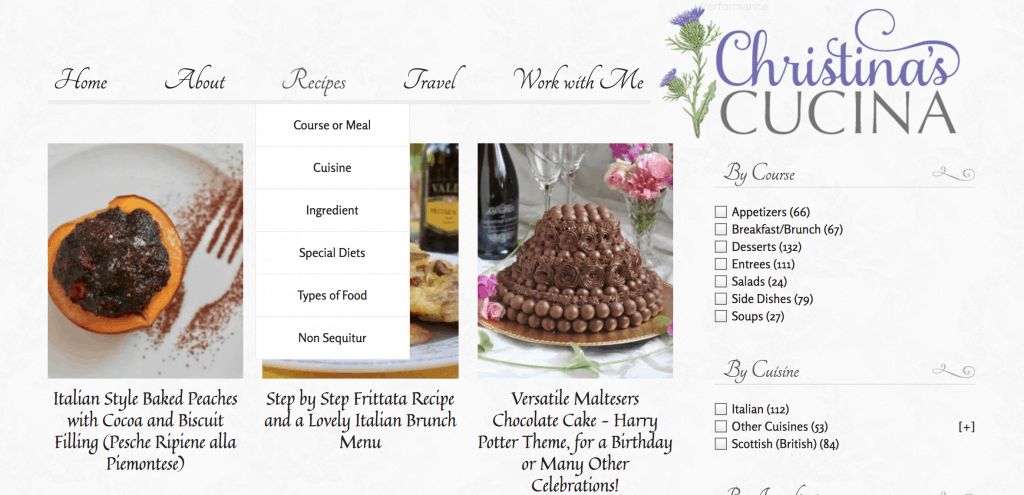
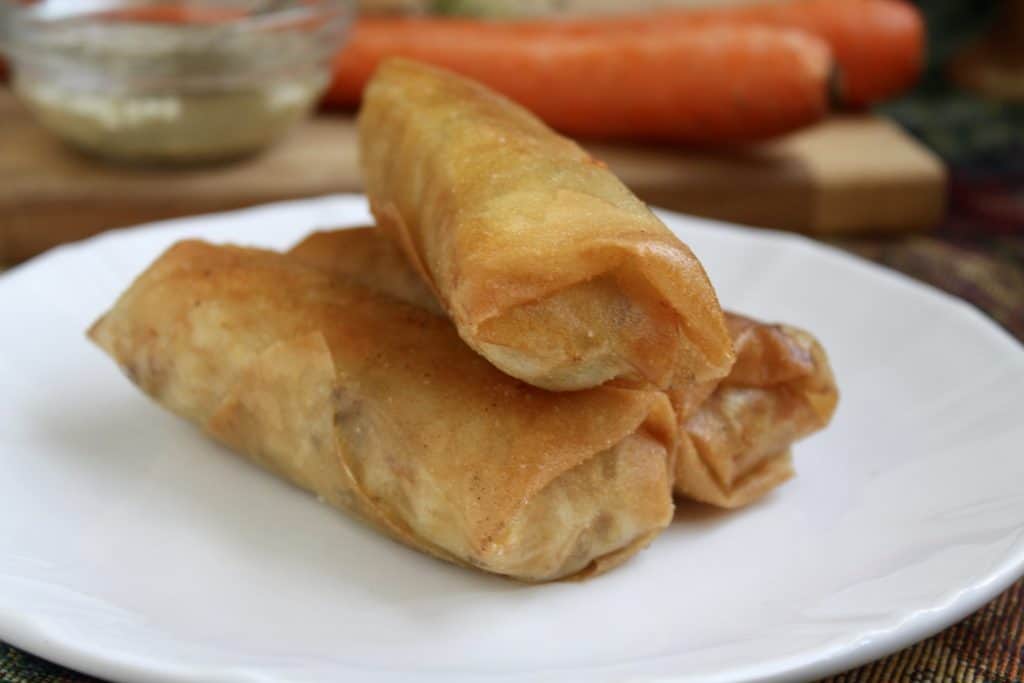
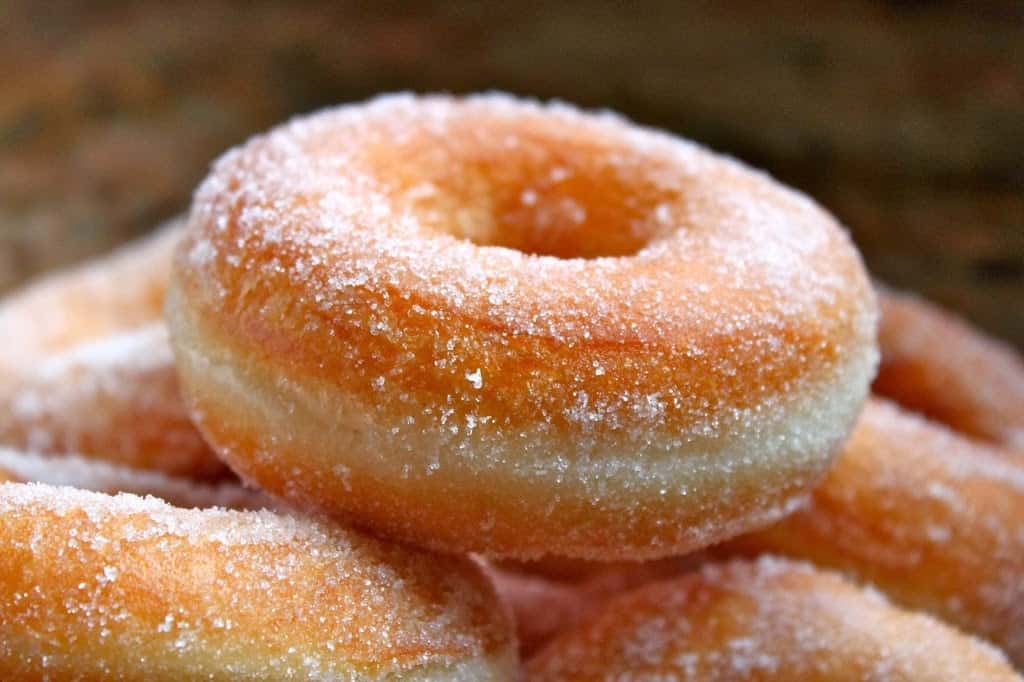
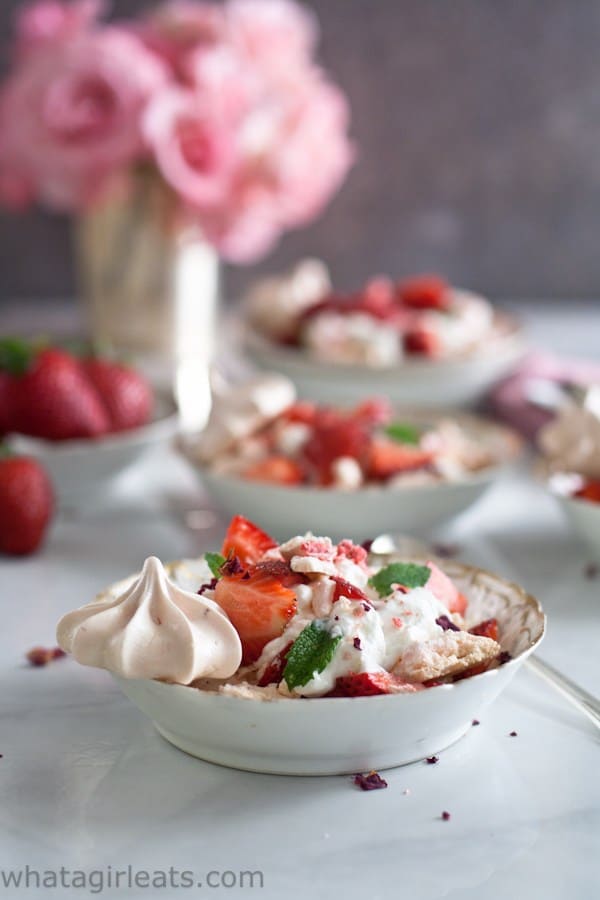


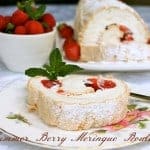

Brilliant post as always Christina, I can totally understand why so much of what you mention does your nut in too!!
Of course you do!! Thanks, Donna!
Such good points here – I like to stick to my cookbooks (can never had too many of those) but when I do venture online to look for a recipe I’ve got my favourite sites which I know will work Eton Mess a trifle – Phah!
I do love cookbooks! I have a hard time purging my stash!
Oh I do love when you go on a rant. I applaud you and your honest opinions.
#keepingitreal
I think it’s the Scottish-Italian combination, Cathy. I should have talked about your teabag and hedgehog cookies!! Oh my, that made me SOOOO angry, but especially when she denied it! Who in the world would ever make those two types of cookies together and call it coincidence? #notcool
What helpful information you have shared in this post. I really enjoy reading your blog, enjoying your travels vicariously, and occasionally trying the recipes. I have always had good luck, so I trust you. Now — who is this blogger you mention who is a big phony? I want to make sure I don’t look at that one. As long as I have been cooking, I usually can tell by reading through them the ones which are guaranteed to fail.
Thank you, Ellen. I’m very glad I’ve gained your trust. Unfortunately, I can’t publicize the deceitful blog for obvious reasons, but let’s just say that it’s not a very personal looking site (no photos to greet you when you arrive), at least at the time I write this, it is the case. If you follow my recommendations, you won’t end up using their recipes, so don’t worry.
I trust your recipes and those you recommend because of all the above! If you recommend another blogger I check them out. I really appreciate knowing the stories behind recipes, etc. And I know that you have tested and tested them.
Wonderful to hear, Susan! Thanks for your loyalty!
I agree wholeheartedly on attribution. However, I have to quibble a bit on what you seem to be saying, i.e., you can’t trust a recipe that’s blogged by someone with no culinary training. Not so. Culinary professionals, proportionally, publish as many bad recipes as non-pros. It’s all a matter of taking care and testing, testing, testing.
Also, if you have a broad enough culinary background, just from living the life you have, you can come up with recipes that virtually duplicate some classic you’ve never heard of. I look at food blogs, cook books, food photos and am so exposed to a wide range of culinary combos and techniques that now live in my head. Several times, I have made something and had someone comment on how much they liked my, e.g., bourek. Well, I’d heard of bourek, but I’d never eaten it or even seen one. I’d managed to make one, though, using up the tag ends of a package of phyllo, some leftover deli roast beef and things I thought would taste good with them: spinach, onion, feta, dill, garlic. So, it can happen.
In spite of all my quibbles, I’m solidly behind the heart of this post. Thanks for putting it out there. People need to be reminded every once in a while. ;)
Hi beejay, I don’t know if it’s my writing or your reading, but there’s a big communication breakdown from what I just read in your comment. It’s almost quite funny, actually, because I have no culinary training, but I’m tell you that you CAN trust my recipes! ? So there’s no quibbling necessary as we’re on the same page.
However, no I think I need to go back and clarify what I wrote to make sure others don’t also think I’m saying only to trust trained chefs! Trust me, I’ve made recipes from cookbooks and chefs that were disasters, I agree!
Thanks so much for your comment :)
What you said. :)
My 2¢ to all – learn to read a recipe so you will learn to know if it will work. Get a scale. Let everyone know where you came by a recipe,
if for no other reason it will help you make friends.
Eton mess is delicious and is not a trifle.
Thanks for sharing. Good stuff.
YES!! Get a scale!! :) Thank you, Madonna!
Ah, Christina, amen to everything you’ve said! There is so much dreck and outright dishonesty out there, it can be discouraging. And it’s not limited to bloggers, unfortunately. Thanks so much for the shout out—I’m honored to be cited as one of the “good ones”. I certainly try to be!
Of course, Frank! You’re such an inspiration to me! LOVE your site and recipes. You are authentic and real! Thank you!